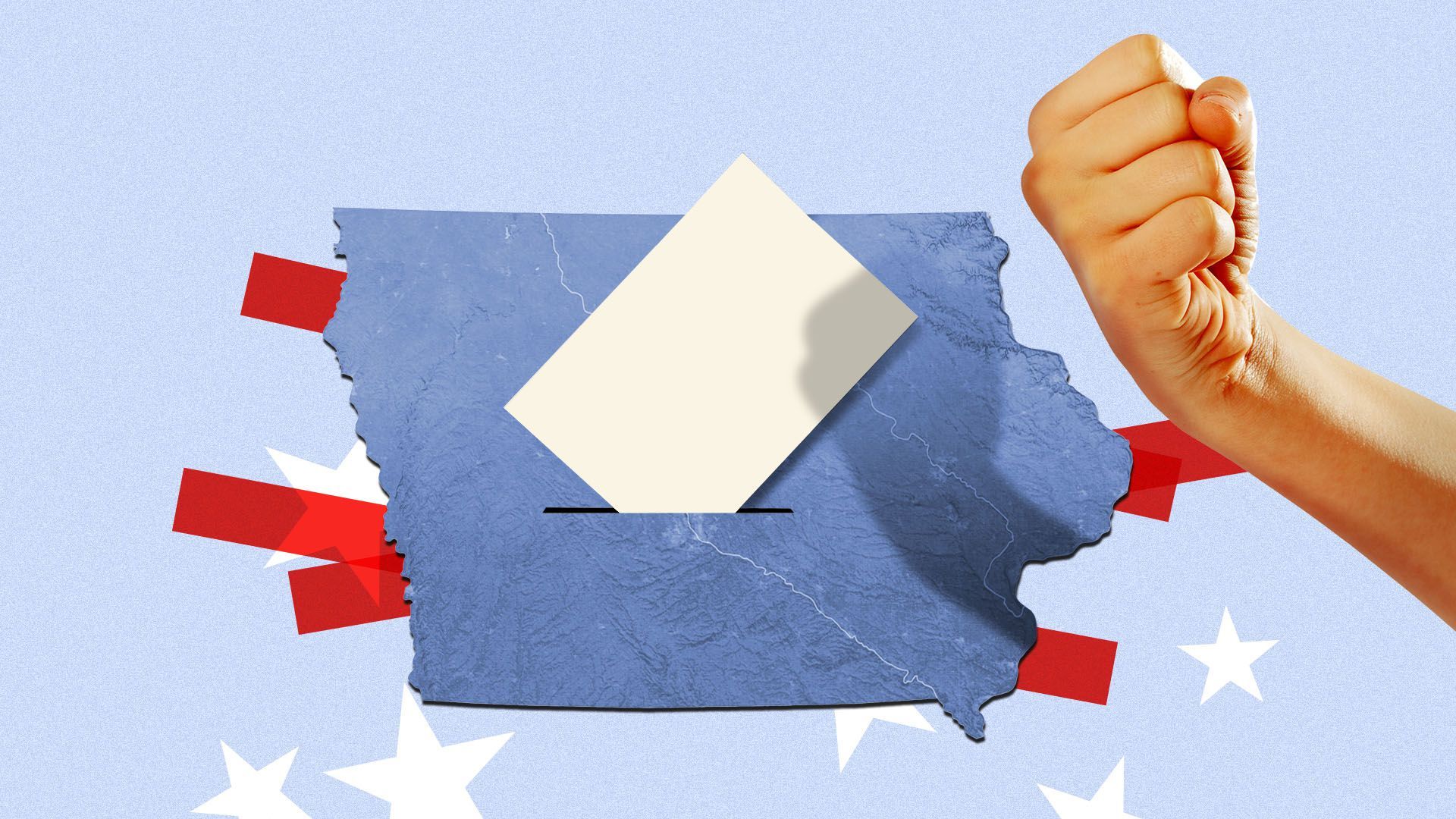Finger pointing continues over Iowa app fiasco
Add Axios as your preferred source to
see more of our stories on Google.

Illustration: Sarah Grillo/Axios
It's been two days since app problems delayed returns and cast a stain on the Iowa caucus, but the blame game continues.
Why it matters: So far, two things seem pretty clear. It's not a good idea to rely on an app as the primary means of tabulating election results, and the app used in Iowa was also pretty bad.
Recap: The Iowa Democratic Party commissioned a mobile app to convey results of local caucuses to the state Democratic Party. Finding issues with the app, many precincts chose to phone in results instead, but the party didn't have enough staff to handle those reports, delaying the results.
The big picture: The problems in Iowa come at a particularly tough time. The U.S. is already struggling to bolster the stability and reliability of its elections, which are under stress from extreme partisanship, the spread of conspiracy theories on social media, and the still-fresh memories of Russian meddling in the 2016 contest.
Security is essential to election technology, but it's not the only thing. Voting systems, whether paper or digital, also need to be straightforward, transparent and auditable, Axios' Scott Rosenberg reports.
- Despite advances in technology, paper is seen as the gold standard because it offers all three.,
- But, if you are going to use technology, you want to make sure it is thoroughly tested and proven reliable. The app used in Iowa, made by a startup called Shadow, was neither.
- In fact, according to reports, it was buggy and error-prone, difficult to use and not even designed to be used in production, relying on a testing protocol for distribution.
While there is no evidence of any hacking having taken place, ProPublica reports the app was also highly susceptible to intrusion. The same report says the Homeland Security Department offered to help test the app, but the Iowa Democratic Party declined the offer.
What they're saying:
- Zeynep Tufekci, on Twitter: "Who needs the Russians when elite arrogance, matched in magnitude by their incompetence, can screw things up this badly? If only it were the Russians! That'd be easier to fix. Worse, there was no need for that damn app."
- Shadow CEO Gerard Niemira, in a statement on the firm's website: "We sincerely regret the delay in the reporting of the results of last night's Iowa caucuses and the uncertainty it has caused to the candidates, their campaigns, and Democratic caucus-goers. As the Iowa Democratic Party has confirmed, the underlying data and collection process via Shadow's mobile caucus app was sound and accurate, but our process to transmit that caucus results data generated via the app to the IDP was not."
- Tara McGowan, co-founder of Democrat tech startup ACRONYM, to Axios: "We don't want things like this to discourage people taking risks because the aversion to the risks could be the reason we lose in November."
The bottom line: This was essentially a playbook for how not to employ technology in an election.
What's next: Nevada was reported to be planning to use the same app for its caucus, but it has decided not to in the wake of the Iowa fiasco.
Go deeper: Pete Buttigieg holds narrow lead in Iowa with 97% of precincts reporting
